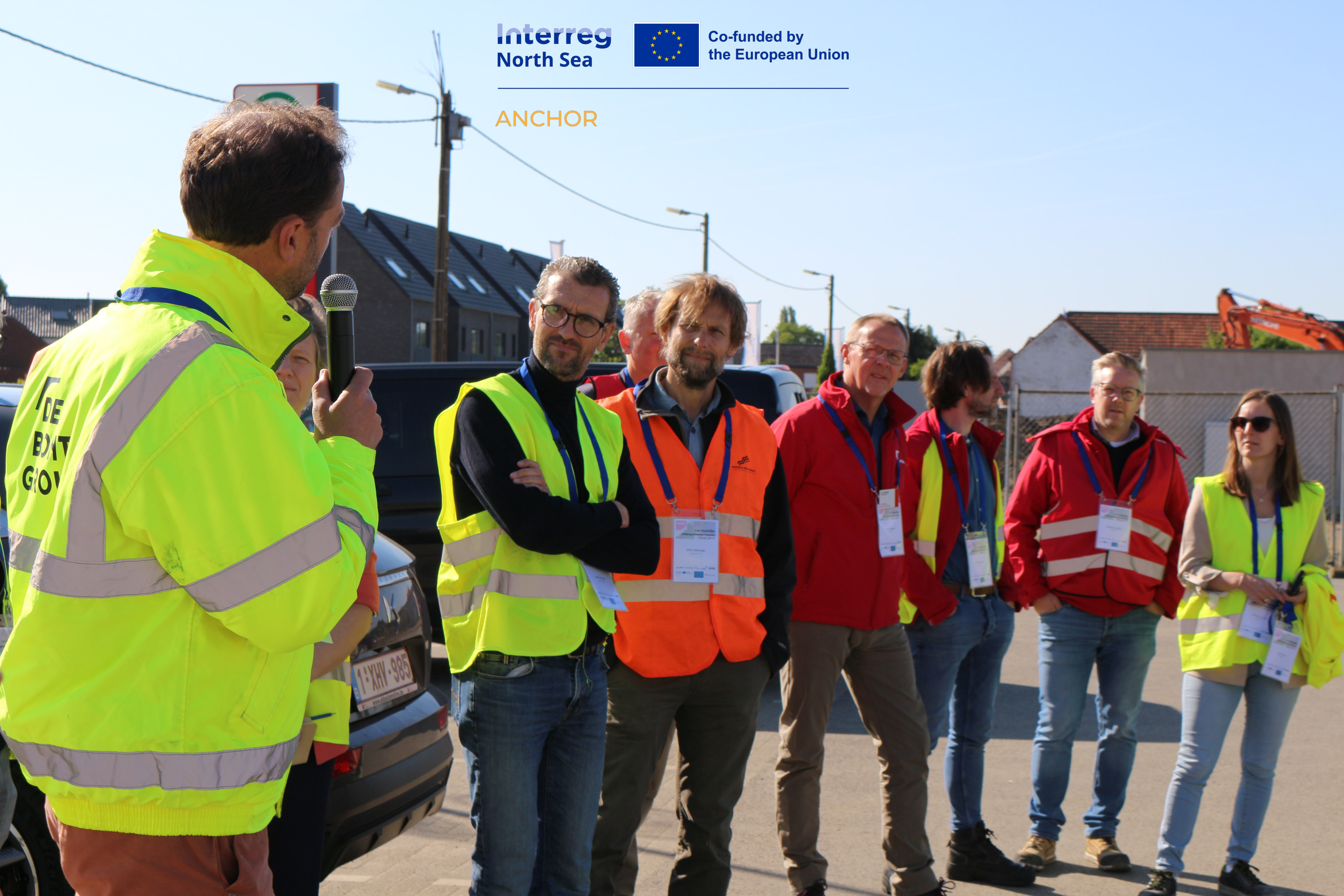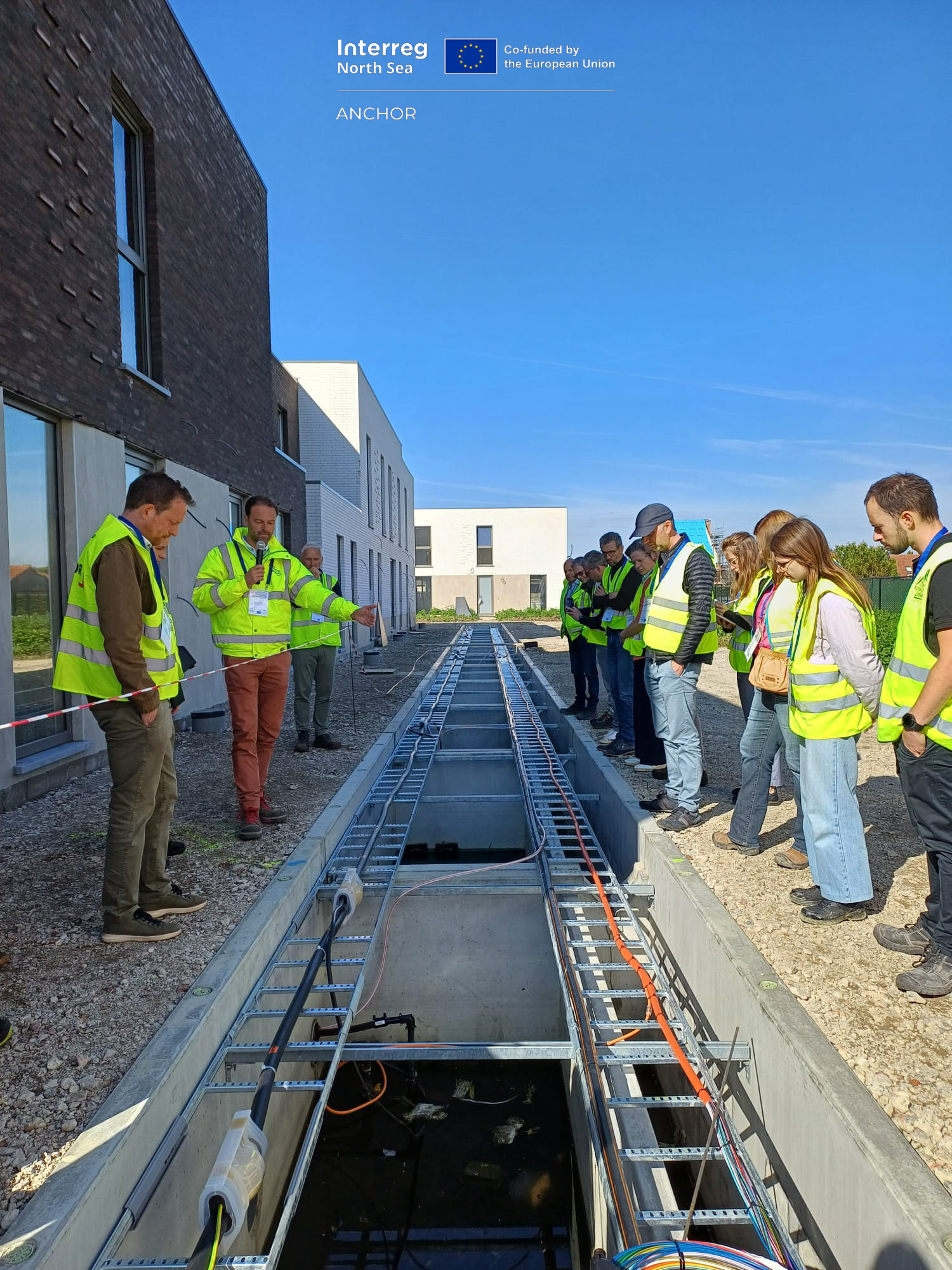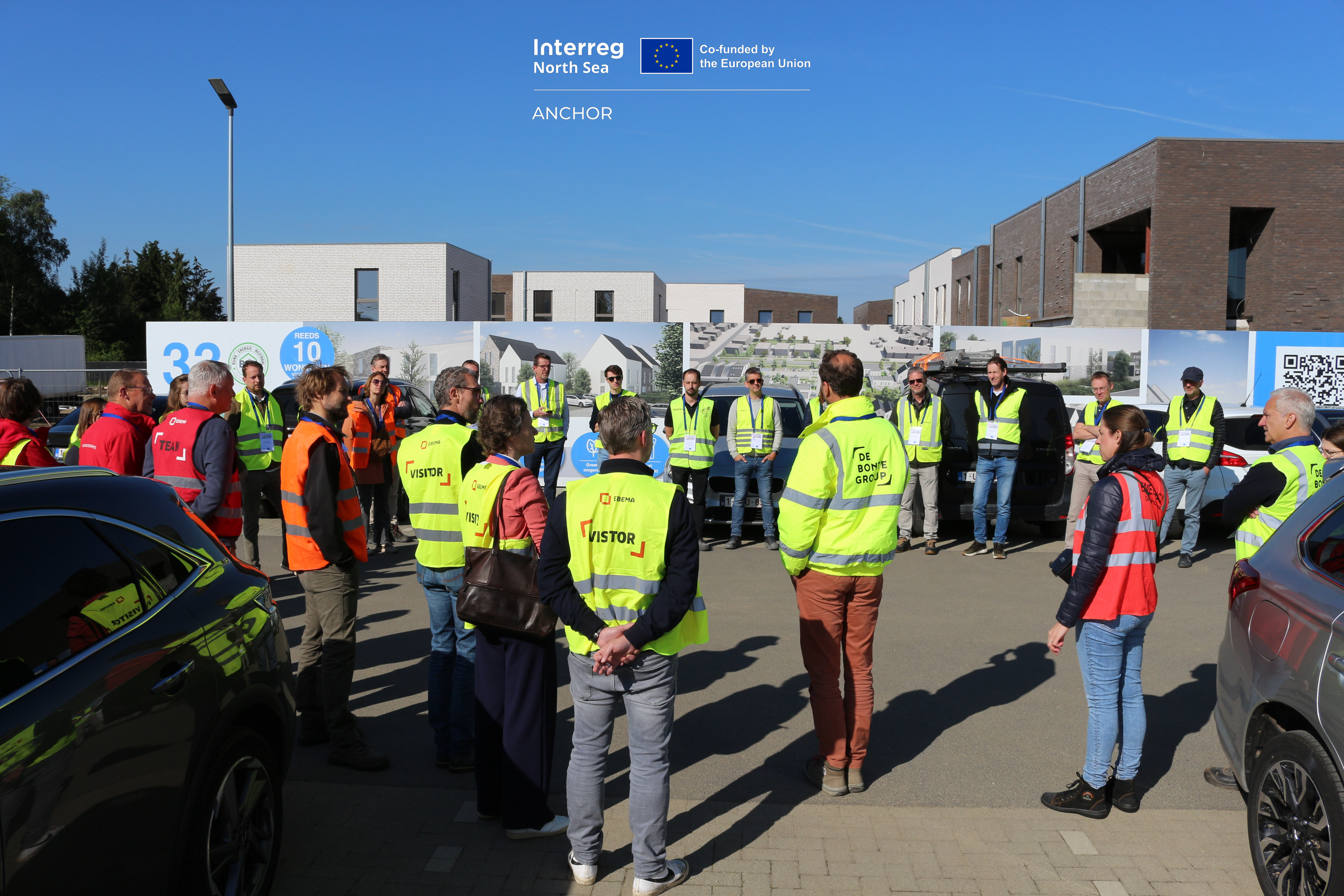The ANCHOR project took up the ambition to organize communities of practice (CoPs) in each member state during the project lifetime. A community of practice is an active learning network that meets at least twice a year to exchange about urban water projects. The aim is that both ANCHOR partners and other participants learn from each other, and share experiences and knowledge.
The purpose of the CoP
The same challenges pop up in innovation projects. They are stumbling blocks that often greatly delay project realizations or even eventually cause them to plummet. Those issues can be roughly divided into 4 groups:
- Organisation - How do you organize the project? Who takes what responsibility? How do you involve stakeholders the right way?
- Financing - How do you finance the project? When is a business case viable?
- Technology - What technological barriers or uncertainties do we encounter?
- Legislation - How do you reconcile innovative projects with current legislation?
The CoP network aims to address these recurring challenges by actively reflecting and sharing knowledge from practical cases. That allows us to take steps forward to make it easier to roll out similar water projects.
The ANCHOR project focuses on decentralized treatment in an urban context and recovery and reuse of valuable raw materials from domestic wastewater. In the CoP network, we want to look broader and also address other relevant topics in an urban context.
First CoP ‘Urban Water Communities’ in Flanders and Germany
Flanders deep dives into collective rainwater systems
VITO-Vlakwa and Circular organized the first Flemish Community of Practice 'Urban Water Communities' in Flanders on June 13th 2024. The Flemish partners decided to focus during the first CoP on collective rainwater storage and use. They selected a new housing project consisting of a new residential area with 33 homes and an adjacent supermarket in Wiekevorst. This project is called ‘Smart Street’ and made up the focus of this CoP, where 30 participants cocreated and exchanged knowledge.

The Smart Street is an innovative concept which:
✔ Deploys collective rainwater collection, reuse and management of water from roofs and allows for maximum infiltration of run-off rainwater
✔ Makes utility pipes more conveniently arranged and accessible via removable top plates. This means no more breaking work required when adjusting, preventing excavation damage and no more tangled cables in the subsurface.
✔ Pays attention to green! Within this concept, trees are central. Much attention is paid to functional green by providing sufficient space, water and light by means of a tree bunker (15 m³ space/tree) equipped with a salt lock to avoid inflow of salt water in winter.
The event started with a site visit to the Smart Street. Filip De Bonte and Philippe Segers (B’Rain Connect) and Frederik Spiessens (Pidpa, drinking water company) brought a very honest story about the innovative concept and implementation in Wiekevorst. People were told not only what went well, but also what did not.

A point of attention for future projects is to continue to focus on good site follow-up. Despite very good site preparation, on-site follow-up stays crucial. After the visit there was a short presentation, followed by an interactive session based on the 4 topics: organization, financing, technology and legislation. Check out the recap report of the CoP as well as the slides (only available in Dutch).

German cities show interest in implementing decentralized water systems
Hamburg Wasser organized their first CoP February 20th. It consisted of a site visit to Jenfelder Au, one of the ANCHOR demo sites where a pilot will be installed. Two of the CoP members were cities with a specific interest in decentralised systems, since they are considering implementing systems in new urban districts of their own.
Get involved
Interested in being part of a national CoP? Then register here!
Any suggestions for future CoPs? Then be sure to let us know!
Curious to know more?
For any questions about this article you can reach out to the author, Veerle Depuydt (VITO, BE).
